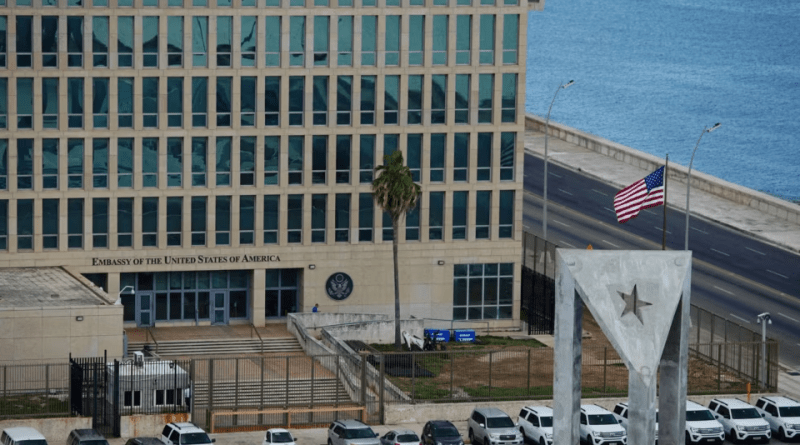Cuban authorities accused the U.S. of “fomenting protests” on the island
Cuba’s foreign ministry has summoned the U.S. chargé d’affaires in charge of the U.S. diplomatic mission, accusing Washington of seeking to foment a widespread anti-government uprising and interfering in Cuba’s internal affairs.
The White House’s Platform X account issued a statement Sunday saying the administration was monitoring the protests and urging the Cuban government to “respect the rights of the protesters and meet the legitimate demands of the Cuban people.”
The comments prompted the Cuban Foreign Ministry to summon Charge d’Affaires Benjamin Ziff to meet with Deputy Foreign Minister Carlos Fernandez de Cossio, “who formally expressed his strong opposition to the interventionist behavior of the U.S. government and the defamatory reports,” the ministry said in a statement.
A State Department spokesman said suggestions that Washington was behind the protests were “absurd.”
Another incident between the two longtime opponents underscores how Cuban-U.S. relations have hardly improved since President Joe Biden took office in 2021.
On Monday, Cuba’s foreign ministry repeated longstanding accusations that the Cold War-era U.S. embargo and other sanctions were aimed at impoverishing Cubans and destabilizing the country.
Sunday’s protests, which Cuban officials called “respectful,” were the largest overnight protest since October 2022, when Hurricane Ian caused the island to lose power for nearly a week.
Demonstrations are a rare occurrence in Cuba, where dissent is not tolerated by authorities.
On Monday morning, news on state television showed social media reports of the demonstrations, including those published by congressmen, accusing U.S. “agitators” of allegedly slandering Cuban authorities by claiming repression and exaggerating the scale of the protests in a bid to confuse the situation and stoke popular anger.
Cuban President Miguel Diaz-Canel also accused Washington of exacerbating the situation in the country.
“Mediocre politicians and online terrorists lined up from South Florida to heat up the streets of Cuba with interventionist messages and calls for chaos. They have been left out in the cold,” Diaz-Canel said on Platform X.
The island was calm on Monday despite government statements that blackouts were expected throughout the week. Cuba’s electricity generation currently meets only two-thirds of demand.
Read also: Trump’s lawyers say it is impossible for him to post bond covering $454 million civil fraud judgment
